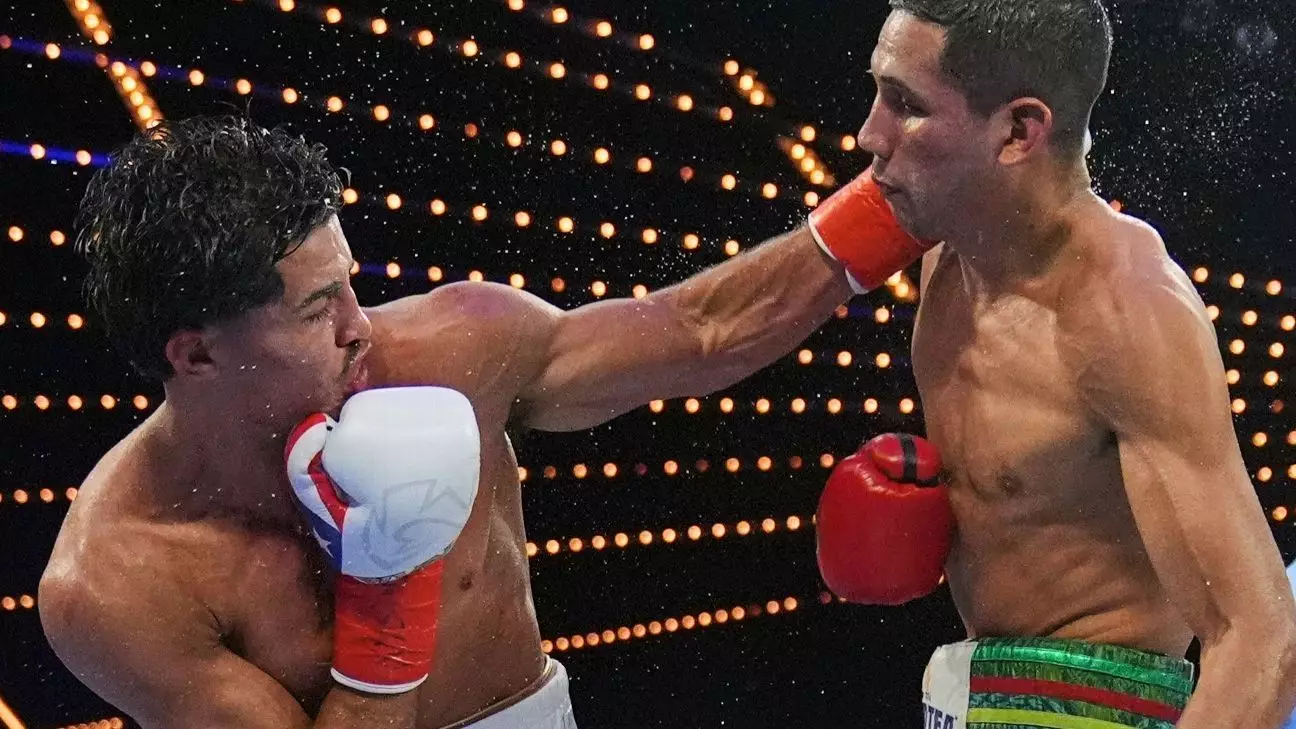Xander Zayas’s victory at Madison Square Garden was painted as a momentous milestone—yet, beneath the surface, it reveals much about the sport’s flawed narrative of promising young talent. While the media heralded his dominance and status as the youngest reigning champion, it’s crucial to scrutinize whether this glittering achievement signifies genuine potential or simply superficial hype. The celebration of youth and success often masks a deeper stagnation within boxing, where talent is overhyped, and meaningful progression is hindered by overconfidence and commercial interests. Zayas’s prowess, while notable, shouldn’t blind us to the broader issues plaguing boxing’s development of sustainable talent.
The emphasis placed on Zayas’s age and his victory at a storied venue like Madison Square Garden serve to elevate his image prematurely. Yes, he fought with precision and determination; however, with opponents that largely lacked the experience to pose a true threat, his victory, while visually impressive, raises questions about the depth of his skills when faced with more seasoned competition. The sport’s obsession with youthful champions often neglects the necessity of rigorous, challenging fights that actually test a fighter’s limits. This creation of a “young prodigy” narrative can create a false sense of hope that isn’t grounded in the long-term reality of athletic development.
Contradictions in the Celebrated “Next Generation”
Moreover, the boxing industry seems more captivated by the spectacle of youth than by grappling with the fundamental issues of fighter safety and legitimate career progression. Zayas, who at just under 23 years old, already holds a world title, is prematurely placed on a pedestal. Yet, his journey is emblematic of a broader pattern: fighters are often rushed to the top to generate profit and narratives, sacrificing the organic development that builds true champions. This practice not only risks the wellbeing of fighters but distorts the sport into a spectacle of quick successes rather than a discipline rooted in skill, resilience, and consistent growth.
The hype surrounding these young champions, like Zayas, is a double-edged sword. It sells tickets, fuels media interest, and creates marketable stories, but it also tends to overshadow the necessary grind, discipline, and adversity that mold real champions over time. Boxing is intrinsically brutal—not just physically but also symbolically—when young fighters are thrust into the limelight without the seasoning necessary to handle the pressures and responsibilities of a sustained career.
Furthermore, the fight itself exposes the limitations of relying heavily on technical finesse and strategic patience. While Zayas displayed adept footwork and effective counterpunching, it is naïve to believe these skills alone ensure lasting greatness. True champions are forged through adversity, through adversity often disguised as losses or setbacks—not through polished victories against opponents in their developmental phases. The sport risks reducing itself to a series of highlight reels, neglecting the foundational virtues of grit, resilience, and tactical adaptability.
The Illusion of Progress and the Need for Authenticity
The boxing industry’s obsession with creating perfect narratives leaves little room for authenticity. Zayas’s win, celebrated as a historic moment, somewhat glosses over the fact that his victory was achieved over a hurriedly assembled opponent whose own career had not yet been tested against elite competition. This selective storytelling, which frames young fighters as saviors of the sport, is fundamentally flawed. Boxing’s true progress depends on creating environments where fighters confront their limits over multiple, challenging bouts—not on quick wins that inflate their resumes.
Similarly, in the co-main event, Bruce Carrington’s unanimous decision victory and the subsequent callout of WBO champion Rafael Espinoza typify the genre’s tendency to prioritize immediate narratives over strategic development. While Carrington’s achievement is commendable, the sport should be wary of using such victories as springboards for overhyped expectations that often lead to disappointment. The obsessive fixation on combat for titles and rankings often disregards the importance of building well-rounded, adaptable fighters who can withstand the rigors of a grueling career rather than just a series of highlight-reel moments.
The underlying issue remains unresolved: boxing needs a paradigm shift that values honest, incremental progress more than instant glitter. The current environment fuels a cycle of overhyped prospects and fleeting fame at the expense of true longevity and durability. For the sport to evolve meaningfully, it must prioritize fostering fighters who demonstrate resilience and adaptability, rather than those who simply look impressive in short bursts.
The celebration of Zayas’s victory at Madison Square Garden is a reflection of boxing’s obsession with youth, spectacle, and marketability—yet it also exposes a deeper crisis of authenticity and sustainable development within the sport. Without genuine integrity and strategic growth, boxing risks remaining trapped in a cycle of fleeting moments rather than cultivating true legends.



Leave a Reply